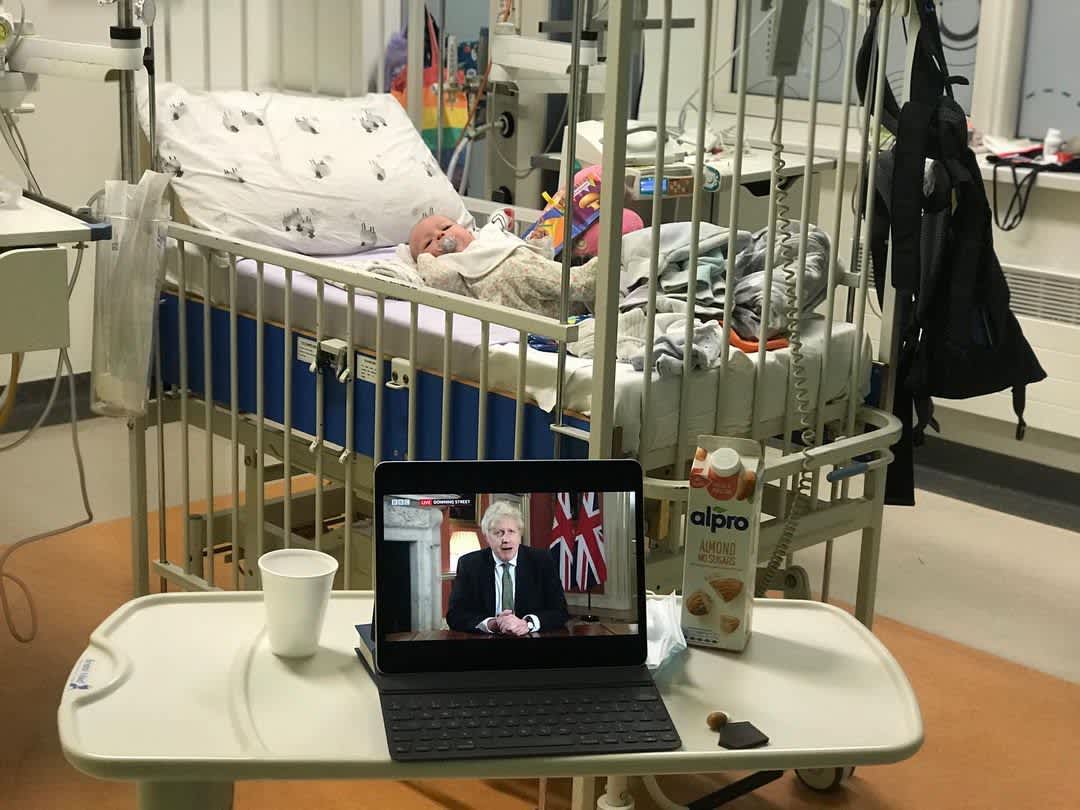Harry Potter alum, Jessie Cave, has revealed that her three-month-old son Abraham is being treated for coronavirus.
The 33-year-old, who played Lavender Brown in the movie franchise, announced the news on her Instagram, saying that she had watched the news about the new UK lockdown restrictions while “isolated” in a room in a UK hospital.
“Poor baby is covid positive,” she wrote. “He’s okay and doing well but they are being vigilant and cautious, thankfully. This strain is super powerful and contagious so I do hope that people take extra care in the coming weeks.”
According to the BBC, the UK has topped 60,000 cases for the first time since the pandemic started, which is an astounding one in 50 people, however, 1.3 million people have now been vaccinated.
Cave, who is also mum to son Donnie, five, and daughter Margot, three, with husband Alfie Brown, went on to say that she “didn’t want to be back in a hospital so soon after his traumatic birth”, however, was “once again in awe of nurses and doctors”.

How Does COVID-19 Affect Babies?
According to the Mayo Clinic, although rare, “children under the age of one appear to be at a higher risk of severe illness with COVID-19.”
While not confirmed, it is likely due to their immune system and smaller airways which makes the likelihood for them to develop breathing issues with respiratory virus infections.
Newborns can contract the disease either during childbirth or through sick caregivers and hospitalisation is recommended.
The Mayo Clinic also suggests ways of limiting exposure to a newborn, which includes wearing a cloth face mask and keeping a distance from the baby where possible.
What are the Symptoms for a Newborn?
The Mayo Clinic says that children’s symptoms tend to be more “mild” and they often recover within two weeks.
Possible symptoms include:
- Fever
- Nasal congestion or runny nose
- Cough
- Sore throat
- Shortness of breath or difficulty breathing
- Fatigue
- Headache
- Muscle aches
- Nausea or vomiting
- Diarrhea
- Poor feeding or poor appetite
- New loss of taste or smell
- Belly pain
- Pink eye (conjunctivitis)
The World Health Organisation (WHO) reports that during pregnancy, a mother has an increased risk of developing a severe case of COVID-19 and seem to require care in intensive care units more than others of child-bearing age.
For more information, visit WHO.
The health crisis is ever-evolving. If you suspect you or a family member has coronavirus you should call (not visit) your GP or ring the national Coronavirus Health Information Hotline on 1800 020 080.







